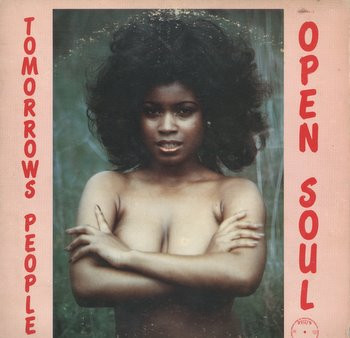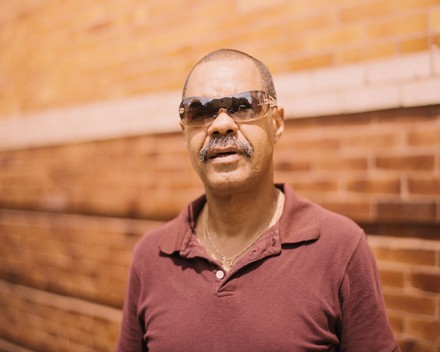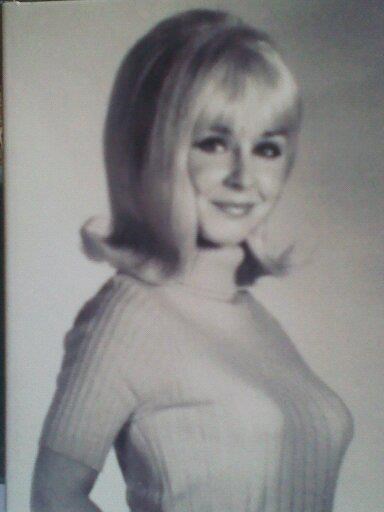
Bob Abrahamian interviews Timothy Burton, a member of the Chicago group “Tomorrow’s People,” about their history and evolution. The group, initially known as the Burton Brothers, started singing in church and evolved into a secular band influenced by artists like James Brown and the Jackson Five. They performed at various venues, including nightclubs, and recorded an album in 1976 with Willie Nance’s label. Despite radio play and positive reception, the album did not achieve widespread success. The group continued to perform until 1983, with Timothy and his brother Jerry still active in music today.
Background & Formation:
Tomorrow’s People was formed on the South Side of Chicago by four brothers: Kevin, Maurice, Jerry, and Timothy Burton.
They began as a church group called The Burton Brothers, performing gospel and Christmas carols before transitioning to secular music.
Influenced by groups like The Jackson Five, James Brown, and The Temptations, they evolved into a soul band.
Early Years:
Originally called Soul Taken Over, they performed at local venues like the High Chaparral and the Green Bunny while still very young. Timothy was just 9 years old at the time.
Their father managed the band and helped make uniforms, especially after they started performing in adult nightclubs.
Musical Evolution:
The group changed names to Tomorrow's People after moving and deciding to play their own instruments. Timothy played keyboards, saxophone, and later bass.
They wrote original material and recorded a full album in 1976 with Willie Nance’s Stage Productions label.
Recording & Releases:
Their album included the single “Hurry on Up Tomorrow”, which received some radio play in Chicago.
The band played all their own instruments on the album, which is now a rare collector's item.
They later recorded additional tracks (e.g., “Magical Love”, “Trying to Make It to the Top”), but these were never released.
Live Performances:
Known for choreography and strong harmonies, they developed into a professional act with multiple members, eventually resembling Earth, Wind & Fire in style.
Played mainly on Chicago’s South Side, including at the Orbit House, but never toured nationally due to lack of industry connections.
Later Years & Legacy:
The group disbanded around 1983 after their father fell ill (cancer) and could no longer manage them.
Timothy Burton continued as a musician, playing bass and working with various jazz and funk groups.
Other brothers remained musically active to varying degrees. Most now live in Wisconsin.
Bob Abrahamian: Okay, you are tuned to WHPK 88.5 FM in Chicago. You are now listening to the "Sitting in the Park" show. Today is a special show because I have an interview on the phone with a musician named Timothy Burton, who was in a group called Tomorrow's People. Timothy, can you hear me?
Timothy Burton: I sure can. What's up, Chicago?
Bob: Awesome. So we'll be talking about the story of Tomorrow's People and playing some of their music too. First off, are you originally from Chicago?
Timothy: Yeah, I was born and raised on the South Side of Chicago. The group started as a family group with my three brothers and me.
Bob: When did you first form the group?
Timothy: It kind of evolved more than it was formed. We started singing in church as the Burton Brothers, then moved on to singing Christmas carols around the neighborhood. My brother Kevin got into James Brown, and Maurice liked other styles. Eventually, we started singing secular songs. We met neighborhood musicians and formed a band. The group just evolved.
Bob: Were you called the Burton Brothers at that time?
Timothy: In church, yes. That name stuck for a while until we started working with a band.
Bob: Was that the first time you started singing secular music together?
Timothy: Yes. I’d say around 1965 to 1968. We were influenced by a lot of artists: James Brown, Jackson Five, the Dramatics. We also did street corner harmonies. Groups would meet in the park and take turns performing. It was about who could put on the best show.
Bob: What were your brothers' names, and what was the age range?
Timothy: Kevin was the oldest, then Maurice, then Jerry, and I was the youngest. We were all about two years apart.
Bob: You mentioned the Jackson Five. You were performing around the same time as them?
Timothy: Yeah. We did a lot of their material, including choreography. I was our Michael. Michael Jackson and I were the same age, just a couple of months apart. They were just 15 minutes away in Indiana.
Bob: Did you know them when they released "Big Boy"?
Timothy: Yeah, I loved that song. I was like a little Michael to everyone—same voice style and energy.
Bob: When did the name "Soul Taken Over" come into play?
Timothy: Around high school. Kevin went to Chicago Vocational, Maurice to Dixon. They met musicians like Ronald Hollister. Kevin did James Brown in talent shows and pulled the rest of us in. The band came together through that.
Bob: Did any of you play instruments at that point?
Timothy: No, we were singers and dancers doing choreography like the Temptations or Stylistics.
Bob: Where did Soul Taken Over perform?
Timothy: We played talent shows and nightclubs like the Green Bunny and High Chaparral. I remember playing near 55th Street and Garfield.
Bob: You were playing nightclubs at age nine?
Timothy: Yeah. Our dad was the manager. Once we started playing lounges, he took on a bigger role.
Bob: Did he come up with the name?
Timothy: I'm not sure. Probably the band or someone else did. Dad got more involved once we played out more.
Bob: How often did you practice?
Timothy: Constantly. We sang all the time, practicing harmonies and choreography. We critiqued each other to get better. When we got a band, they just learned our material. Most came from music departments and were already studying music.
Bob: What groups influenced you?
Timothy: The Temptations, the Platters, Jackson Five, Stylistics, Dramatics. I grew up on 60s TV, watching performers spin and harmonize.
Bob: Any Chicago groups that influenced you or were rivals?
Timothy: Sons of Song, and my cousin Paul Richmond played bass for The Impressions. They were a major influence.
Bob: How often did you play clubs?
Timothy: Maybe two gigs a month. My dad and his DJ friend Tom helped get us bookings.
Bob: How were you received?
Timothy: Very well. People saw us as a Jackson Five-type act with our harmonies and youth. We did James Brown, Jackson Five, popular dance songs, and ballads.
Bob: How long did Soul Taken Over last?
Timothy: Until about 1971 or 72. Then we moved further south. The band couldn't continue due to distance, and we started learning instruments ourselves.
Bob: Did you keep the name?
Timothy: No. We became Tomorrow’s People. It felt like a new thing—we were writing our own music and playing our own instruments.
Bob: What did you play?
Timothy: Keyboard and saxophone, then later bass.
Bob: Were you the lead singer?
Timothy: No. Maurice had the smooth voice; Kevin had a strong tenor. Jerry and I did harmonies and played instruments.
Bob: Who wrote the songs?
Timothy: Mostly Jerry and me. We got a multi-track cassette recorder and started writing. As the band evolved, we added musicians to match the changing music scene.
Bob: How did you meet the other musicians?
Timothy: We brought in our cousin Alvin, and I met more people at Chicago Vocational. Horn players, drummers—we recruited from school.
Bob: How big was the group by the mid-70s?
Timothy: Around 11 members. Horn section, two keyboard players, two guitarists, drummer, etc.
Bob: When did you record the album?
Timothy: In 1976, the same day I graduated high school. We went straight from the ceremony to the studio. Willie Nance, from Stage Productions, produced it.
Bob: Who played on the album?
Timothy: Kevin, Maurice, Jerry, myself, and Toby Williams on congas. Maurice on drums, Kevin on bass, Jerry on guitar, I did organ and sax.
Bob: How did you feel about the release?
Timothy: I was excited. We had posters up, and our song “Hurry on Up Tomorrow” got local radio play.
Bob: Did you tour?
Timothy: No, we mostly stayed in Chicago. We lacked industry knowledge and connections. My dad was learning too.
Bob: Did the album lead to more gigs?
Timothy: Yes, it gave us visibility. More musicians joined. Eventually, most of us moved up front to focus on vocals again.
Bob: Did you keep practicing and rehearsing in parts?
Timothy: Yes, I introduced section rehearsals—vocal, rhythm, horns, choreography. We were very organized.
Bob: Did you wear uniforms?
Timothy: Yes. Our father worked at Hart Schaffner & Marx and sewed our outfits. Later, inspired by Earth, Wind & Fire, he made full stage costumes.
Bob: Did you record again?
Timothy: Yes, in 1979, we recorded songs like “Magical Love” and “Trying to Make It to the Top,” but they were never released. We didn’t capture our live energy in the studio.
Bob: When did the group disband?
Timothy: Around 1983, after our father passed from cancer. No one could take over management.
Bob: Did you keep performing?
Timothy: Yes. I played bass in jazz and soul bands, worked with people like Tony Brown, Richie Davis, and Kevin Smith. I got into the North Side scene in the 1980s.
Bob: Do your brothers still perform?
Timothy: Jerry runs a karaoke company and still performs Rat Pack and pop songs. I perform with my group, Focus, doing jazz-funk-reggae. We play events like Hempfest in Seattle.
Bob: Are you all still in Chicago?
Timothy: No. We’re all in Wisconsin now—Milwaukee, Green Bay, Menasha.
Bob: Thanks so much for sharing your story.
Timothy: Thank you. This took me down memory lane. I enjoyed every part of it.
Bob: Any last words?
Timothy: Chicago, don’t forget where the music comes from. That good old soul music is still alive.

